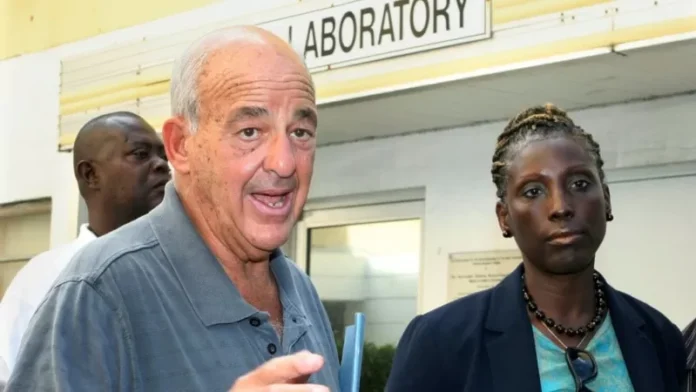Pittsburgh – The world of forensic science lost a legend on Monday as Dr. Cyril Wecht, a pathologist and attorney, passed away at the age of 93. Known for his sharp wit and controversial views on high-profile deaths, Wecht left a lasting impact on the field of forensic science and captured the attention of prosecutors and TV viewers alike.
The Administrative Office of Pennsylvania Courts announced Wecht’s passing, but did not provide any details on the cause or location of his death, only stating that he passed away peacefully.
Wecht’s journey to becoming a household name began in 1964, when he returned to civilian life after serving in the Air Force. At the time, he was working as an assistant district attorney in Allegheny County and a pathologist at a Pittsburgh hospital.
His breakthrough moment came when he was asked to review the Warren Commission’s report on the assassination of President John F. Kennedy. Wecht, known for his thoroughness, meticulously examined the autopsy documents, discovered that the president’s brain was missing, and analyzed an amateur video of the assassination. His conclusion? The Warren Commission’s findings that a single bullet was responsible for the president’s death and the injury of Texas Governor John Connally were “absolute nonsense.”
This marked the beginning of Wecht’s lifelong obsession to prove his theory that there was more than one shooter involved in Kennedy’s assassination. His lecture circuit demonstration, which detailed the impossibility of one bullet causing the damage it did, was later featured in Oliver Stone’s movie “JFK” after the director consulted with Wecht. It became the famous courtroom scene showing the trajectory of the “magic bullet.”
Wecht’s outspokenness on the Kennedy assassination and the media attention it generated made him a go-to pathologist for other high-profile cases, including Elvis Presley and JonBenet Ramsey. He testified at the homicide trial of school head Jean Harris, who was accused of murdering “Scarsdale Diet” physician Herman Tarnower. He also played a role in Claus von Bulow’s acquittal of charges that he attempted to kill his wife, Sunny.
In 1994, Wecht’s findings on Elvis’ autopsy report sparked a reopening of the case by Tennessee officials. However, the official cause of death remained unchanged. Wecht also made frequent appearances on talk shows in the months leading up to the O.J. Simpson trial in 1994, providing expert analysis on the evidence.
Even after his retirement, Wecht continued to share his knowledge and experiences in the field of forensic science through his six books. In one of his books, “Cause of Death,” co-authored with his son Benjamin and Mark Curriden, Wecht was praised by attorney Alan Dershowitz as the “Sherlock Holmes of forensic sciences.”
Born to a grocer, Wecht attended the University of Pittsburgh for his undergraduate studies and later received medical and law degrees from the same institution. He served as Allegheny County’s coroner for two terms, with his first term from 1970 to 1980 being marred by accusations of using county morgue facilities for his private forensic business. He eventually paid $200,000 in restitution after a lengthy legal battle. Wecht also served a four-year term as an Allegheny County commissioner.
In 1982, Wecht ran for U.S. Senate against John Heinz III, but was unsuccessful. However, his impact on the field of forensic science and his contributions to high-profile cases will never be forgotten.
The passing of Dr. Cyril Wecht is a great loss to the world of forensic science. His dedication, thoroughness, and unwavering pursuit of the truth have left a lasting impact, and his legacy will continue to inspire future generations of forensic scientists. We extend our deepest sympathies to his family and loved ones. Rest in peace, Dr. Wecht. Your legacy will live on.

